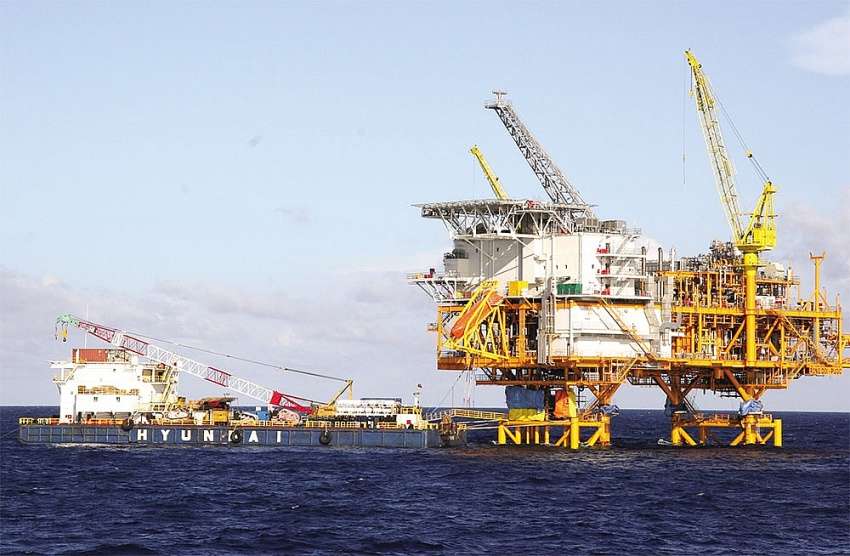As the world grapples with the urgent need to transition from fossil fuels to cleaner energy sources, Africa stands at a crossroads. Blessed with abundant natural resources, the continent has a unique opportunity to lead the way in the global shift towards a sustainable future.
In particular, Africa’s strategic focus on transitioning from coal to natural gas could be a game-changer, not only for the continent’s economic growth but also for its environmental well-being.
In the heart of Paris, against the backdrop of the Eiffel Tower, the Invest in African Energy Forum convened… spotlighting Africa’s burgeoning LNG sector amidst a global energy transition.
This gathering brought together National Oil Companies (NOCs), independent players, and industry experts to discuss the continent’s LNG projects’ growth, the challenges in financing and infrastructure, and the crucial role these developments play in enhancing energy access for millions of Africans.
Per Magnus Nysveen, Senior Partner & Head of Analysis at Rystad Energy emphasizing the increasing demand for LNG as a transition energy said, “Africa has the potential to contribute to one-fourth of global gas production, while utilizing resources equitably to address energy poverty.”
Africa’s LNG export capacity is poised for significant expansion, with projections indicating a rise from current levels to meet growing global demand. Countries like Nigeria and Mozambique are at the forefront of this growth, aiming to nearly double their output within the next few years.
These ambitions align with recent discoveries in Namibia, Ivory Coast, and Senegal, underscoring Africa’s emerging status as a key player in the global LNG market.
The forum served as a platform for exploring the future of Africa’s gas and LNG industry, highlighting the potential of countries like Senegal, The Republic of the Congo, and Mozambique to become formidable LNG exporters.
Additionally, initiatives in Ivory Coast, Nigeria, and Angola are set to drive domestic industrialization and foster economic growth, marking a pivotal moment for energy sustainability across the continent.
Africa’s natural gas reserves are among the largest in the world, providing an ideal opportunity for the continent to diversify its energy mix. Natural gas is a cleaner-burning fossil fuel compared to coal, emitting fewer greenhouse gases and significantly reducing air pollution. Moreover, it can be utilized in various sectors, including power generation, industry, transportation, and residential use.
Significant Impact of Natural Gas on African Nations

The transition from coal to natural gas offers immense economic benefits for Africa. Developing natural gas infrastructure will create job opportunities, attract foreign investment, and stimulate economic growth. By capitalizing on their resources, African nations can become major global players in the energy market.
African countries have firsthand experience of the devastating impacts of climate change, from droughts to extreme weather events. Embracing natural gas can significantly reduce carbon emissions, helping Africa meet its commitments under the Paris Agreement while safeguarding its ecosystems. Additionally, natural gas can serve as a reliable backup for intermittent renewable energy sources, ensuring a stable and sustainable power supply.
Dr. Bi-Dia-Ayo Ibata, Head of Associations and Guardianship Relations Department, Administrator, SNPC, shared insights into the rapid development of the gas project between Eni and SNPC in the Republic of the Congo.
“This project has been one of the fastest in the history of the Congo. The first cargo was sent to Italy in February. The initial phase started with 0.6 mtpa, then increased to 2.6 mtpa by 2025, and beyond that, we plan to produce 3 million tons.”
Dr. Bi-Dia-Ayo Ibata, Head of Associations and Guardianship Relations Department, Administrator, SNPC
The need for energy access in Africa remains pressing, with 600 million Africans still lacking electricity and clean cooking facilities. “We know that in the West, the energy transition from coal to gas has allowed countries to develop, and Africa must do the same with its natural resources,” Dr. Ibata said.
Investing in natural gas infrastructure presents an opportunity for Africa to address its energy access challenges. Many regions on the continent still lack reliable electricity, hindering socio-economic development. Natural gas can provide a cleaner and more accessible energy source, expanding electricity access to underserved communities, powering industries, and driving economic progress.
To maximize the benefits of the energy transition, African countries should foster regional and international collaboration. Sharing knowledge, experiences, and best practices will accelerate the development of natural gas infrastructure and ensure a smooth transition.
Partnerships with international organizations, investors, and technology providers can offer financial and technical support, bolstering Africa’s efforts in this critical endeavor.
Africa’s abundant natural gas resources present a unique opportunity for the continent to lead the energy transition away from coal towards cleaner alternatives. Embracing natural gas will not only drive economic growth and job creation but also contribute to environmental sustainability and climate change mitigation. By taking a proactive stance and collaborating with global partners, Africa can position itself as a key player in shaping a greener and more prosperous future for itself and the world at large.



















